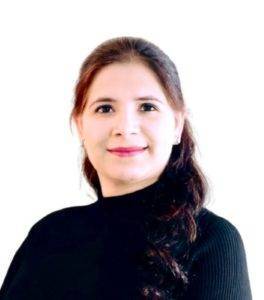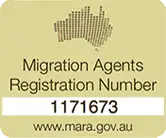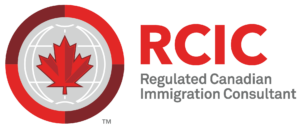
November 27, 2023BY Anindita Banerjee

A look at the Express Entry Annual Report for 2022
Each year, Immigration, Refugees, and Citizenship Canada (IRCC) publishes an annual report on Express Entry. This year too IRCC has released their recent 2022 Express Entry report.
This report provides comprehensive insights into statistics, data, and alterations. For those aiming to comprehend the Express Entry system thoroughly, this report offers valuable information on trends and significant changes.
Explaining Express Entry
Introduced in January 2015, Express Entry stands as Canada’s primary application management system for three Federal High Skilled (FHS) permanent economic immigration programs—the Federal Skilled Worker Program (FSWP), Federal Skilled Trades Program (FSTP), and Canadian Experience Class (CEC)—as well as a segment of the Provincial Nominee Program (PNP). Beyond offering a route to permanent residence for prospective immigrants abroad, Express Entry serves as the transition point for numerous temporary residents already in Canada.
The Express Entry Year-End Report 2022, akin to its predecessors, furnishes an overview and presents data spanning all phases of the Express Entry. This includes profile submissions, candidates in the pool, invitations to apply (ITAs), applications, processing times, admissions, and, notably for the first time in the history of Express Entry Year-End Reports, economic outcomes of applicants—now backed by sufficient longitudinal economic outcome data.
Key Highlights From 2022 Annual Report
1. Decrease in number of Express Entry profiles submitted in 2022 from 2021
The number of Express Entry profiles submitted in 2022 experienced a modest decline compared to 2021. Across all programs, a total of 428,391 profiles were submitted, reflecting a 3% decrease from the previous year but a notable 19% increase from 2020. Among these profiles, at least 74% remained eligible for at least one of the immigration programs overseen by Express Entry, consistent with the figures from 2021.
2. More Express Entry profiles submitted by men
The gender breakdown revealed that more profiles were submitted by men (238,382) than women (189,881). The distribution of total profile submissions remained unchanged from 2021, with men accounting for 56% and women for 44%. While the proportion of profile submissions eligible for at least one program remained constant for men (71%) from 2020 to 2022, there was a slight uptick in 2022 for women, reaching 78%—indicating a marginal increase compared to previous years.
3. Majority of Express Entry profile submissions from people with CRS scores between 301 and 500
While the overall number of eligible profiles submitted in 2022 experienced a slight decrease, the distribution of CRS scores for eligible individuals at the time of submission remained consistent within the range of 301 to 500.
Among the individuals who submitted profiles in 2022, the majority (55%) did not meet the criteria for any additional points. Nonetheless, there has been a gradual decrease since 2020 (63%) and 2021 (58%), signifying a growing number of candidates now qualifying for at least one type of additional point. Notably, candidates most frequently fulfilled the criteria for education in Canada (23%) and having siblings in Canada (14%).
Canada’s Comprehensive Ranking System (CRS) is a points-based system used in the Express Entry immigration system. Candidates in the Express Entry pool are awarded points based on various factors such as age, education, work experience, language proficiency, and other additional factors. The CRS is a tool to evaluate and compare the profiles of candidates, assigning them a numerical score that determines their rank in the pool.
Experience you can trust,
service you can count on.
- Honest, Ethical & Reliable
- Proven track record with over 99% success rate
- Five-star Google and Facebook review rating
A look at ITAs issued in 2022:
From January to June 2022, IRCC conducted 13 invitation rounds specific to Provincial Nominee Programs (PNP) and 11 generic rounds from July to November 2022. No invitation rounds took place in December 2022 due to the introduction of NOC 21, followed by technical issues in the GCMS system.
IRCC organized a total of 24 invitation rounds, issuing 46,539 invitations in 2022. This marked a 59% decrease from the 114,431 invitations issued in 2021. This reduction reflects the department’s decision to temporarily halt invitations to the Federal High Skilled (FHS) immigration programs managed under Express Entry (EE), resuming only PNP-specific rounds from September 2021 until July 2022.
Additionally, due to the temporary pauses in general invitation rounds, the majority of ITAs in 2022 were granted to candidates under two programs: 19,258 under PNP and 18,895 under Canadian Experience Class (CEC). The remaining 8,386 ITAs were issued to candidates under the Federal Skilled Worker Program (FSWP), while no ITAs were given under the Federal Skilled Trades Program (FSTP) in 2022. This shift in distribution contrasts with 2021, where only CEC-specific and PNP-specific invitation rounds were conducted as part of the department’s strategy to target candidates eligible for CEC and PNP, who were more likely to be physically present in Canada and less affected by pandemic-related border restrictions.
In terms of candidates invited to apply, CRS cut-off scores in 2022 ranged from 674 to 808 for PNP-specific rounds (median = 754), and from 491 to 557 for generic rounds (median = 510). The CRS cut-off scores of generic rounds could be seen to decrease throughout the year as the number of total ITAs issued per round increased, while the number of total ITAs issued for PNP-specific rounds were generally more consistent but also saw a similar variation in cut-off scores.
ITAs issued by gender in 2022:
In 2022, the majority of Express Entry invitations went to men, constituting 58% of the total, mirroring the proportion of eligible profile submissions made by men in relation to the overall profile submissions. Breakdown by program type reveals that men received more invitations than women in both the Canadian Experience Class (CEC) (42% vs. 39%, respectively) and the Provincial Nominee Program (PNP) (43% vs. 39%, respectively).
ITAs by age in 2022:
Regarding the age distribution of candidates receiving ITAs, in 2022, individuals in the 20-to-29 age group comprised 50% of all ITAs granted. The second-largest age group among ITA recipients, were individuals aged 30-34. With a 29% rise compared to the 2021 data, which stood at 19%, it suggests a growing number of applicants being selected from this age group.
ITAs by language proficiency in 2022:
In 2022, a higher number of ITAs were extended to individuals with enhanced proficiency in their first official language, as indicated by their Canadian Language Benchmark (CLB)/Niveaux de compétence linguistique canadien (NCLC) score.
The breakdown of ITAs granted depending on the CLB/NCLC levels, presented in ascending order, is as follows:
- CLB/NCLC 4: A total of 7 ITAs were issued to candidates at this proficiency level.
- CLB/NCLC 5: A substantial 817 ITAs were extended to individuals with proficiency at this level.
- CLB/NCLC 6: A noteworthy 2,094 ITAs were awarded to candidates who achieved this level of language proficiency.
- CLB/NCLC 7: The highest number of ITAs, amounting to 9,444, were issued to candidates with proficiency at this level.
- CLB/NCLC 8: A substantial 8,709 ITAs were granted to individuals demonstrating proficiency at this level.
- CLB/NCLC 9: An even higher number of ITAs, specifically 15,587, were issued to candidates who achieved this level of language proficiency.
- CLB/NCLC 10: The year saw 9,881 ITAs being extended to individuals who showcased the highest level of language proficiency.
ITAs by education level in 2022:
In 2022, the majority of invitations (46%) were granted to candidates holding master’s and entry-to-practice degrees, surpassing the proportion in 2021 (19%) by more than double. Following closely were candidates with post-secondary credentials of three years or longer (40%) in 2022, marking a decrease from the 54% observed in 2021. The proportion of candidates with one- or two-year post-secondary credentials, as well as those with a high school education or less, decreased in 2022 compared to 2021, while the proportion of individuals with PhDs doubled during the same period. In summary, candidates receiving Invitations to Apply (ITAs) in 2022 remained highly educated, with 90% reporting possession of a post-secondary educational credential of at least three years.
ITAs by Canadian Work Experience:
In 2022, the majority of candidates invited to apply (62%) possessed at least one year of eligible Canadian work experience. This marks a decline from 2021, where a significant proportion (92%) of candidates receiving invitations had at least one year of eligible Canadian work experience. This shift can be attributed to the Department’s Invitation to Apply (ITA) strategy in 2021, where 87% of the ITAs were issued under the Canadian Experience Class (CEC), a program that necessitates Canadian work experience. In 2022, 41% of invitations were extended to candidates with at least one year of eligible Canadian work experience, while 35% of invitations were granted to candidates with no Canadian experience.
Notably, the proportion of candidates with substantial foreign work experience invited to apply increased in 2022, with 58% of invited candidates boasting three or more years of foreign work experience.
ITAs on additional points in 2022:
In 2022, the two additional point categories with the highest percentage of male and female applicants were Education in Canada (19,587 ITAs) and Arranged Employment (8,756 ITAs).
For bonus points, women’s primary categories were Education in Canada and French language proficiency, while men favored Arranged Employment and Education in Canada.
In terms of Arranged Employment points, the distribution remained consistent across genders over the past three years, with men consistently meeting the criteria at a higher rate (65%) than women (35%). And in 2022, women slightly surpassed men in meeting the criteria for French-language proficiency points, with 53% of women satisfying the criteria compared to 47% of men. This marks a subtle shift from the previous year’s equilibrium, where both genders held equal shares at 50%.
Top Occupations in 2022:
There were notable shifts from previous years in the predominant primary occupations among candidates invited to apply for permanent residency through Express Entry (EE). In 2021, the transition to Canadian Experience Class (CEC) and Provincial Nominee Program (PNP) specific rounds resulted in a substantial increase in candidates with TEER 2 occupations (i.e., roles typically requiring a college diploma, including those involving apprenticeship training of 2 or more years, or supervisory positions). Conversely, in 2022, candidates with TEER 1 occupations (roles usually necessitating a university degree) constituted a significant proportion of ITAs
Similar to the pattern observed in 2020, occupations related mainly to the technological field, such as software engineers and designers, information systems specialists, and computer systems developers and programmers, remained the most common. These occupations continued to make up a substantial portion of the candidates invited to apply through EE in 2022.
Occupations related mainly to the technological field were the most common occupations for 2022. Food service supervisors and cooks were also the top occupations for candidates invited to apply in 2022.
Countries with most ITAs received:
The three most prevalent countries of residence among candidates receiving an Invitation to Apply (ITA) remained consistent from 2021 to 2022. Although Canada has consistently been the primary country of residence for ITA recipients, the proportion of ITAs issued to this group decreased from 90% in 2021 to 68% in 2022. This shift reflects the return to general invitation rounds following a focus on Canadian Experience Class (CEC)-specific rounds.
During the same period, there was an increase in the proportion of invited candidates indicating India as their country of residence, rising from 3% in 2021 to 8% in 2022. Additionally, the share of invited candidates residing in Nigeria increased from 1% in 2021 to 4% in 2022.
Most number of ITA recipients held citizenship in India
The leading two countries of citizenship among candidates who received an Invitation to Apply (ITA) shifted from India and China in 2020 and 2021 to India and Nigeria in 2022. Although India continued to be the predominant country of citizenship by a substantial margin, the margin decreased from 44% in 2021 to 57% in 2022. Both India and the People’s Republic of China maintained their positions in the top three countries of citizenship since 2020, with Nigeria rising from the fourth most common country of citizenship in 2021 to the second in 2022.
Ontario most popular destination
In 2022, Ontario retained its status as the most favored province (48%), followed by British Columbia (20%), and Alberta (12%), maintaining their positions as the top provinces of destination for the past three years. However, there was a notable decrease in the proportions of Express Entry (EE) applications directed towards Ontario, dropping from 61% in 2021 to 48% in 2022. Similarly, British Columbia experienced a decline from 23% to 20% over the same period. This shift can be attributed to the fact that only Canadian Experience Class (CEC) focused rounds were conducted in 2021, and historically, CEC applicants have been more likely to choose Ontario and British Columbia as their destination provinces than other regions.
Are you ready to take the next step and make an Express Entry profile in Canada?
If you need any assistance or have any questions regarding the process, you can contact our Immigration Consultant in Brampton at +1 289 298 1000 or Book Free Consultation on our website canozvisas.com
Do you want
to Study or Immigrate to Canada or Australia?
We are Canoz Visa Services and our team is committed to provide the highest standards of client service in a friendly environment.

Bakhash Deep Singh
Registered Australian
Migration Agent
MARN: 1171673
He provides comprehensive and personalized services to his clients. He has handled many complex cases for Australian Immigration for his clients and has a very high success rate. He is known for his analytical and strategic approach. He is Originally from India, he has a good command over English, Hindi and Punjabi language.
Do you want
to Study or Immigrate to
Canada or Australia?
We are Canoz Visa Services and our team is committed to provide the highest standards of client service in a friendly environment.







